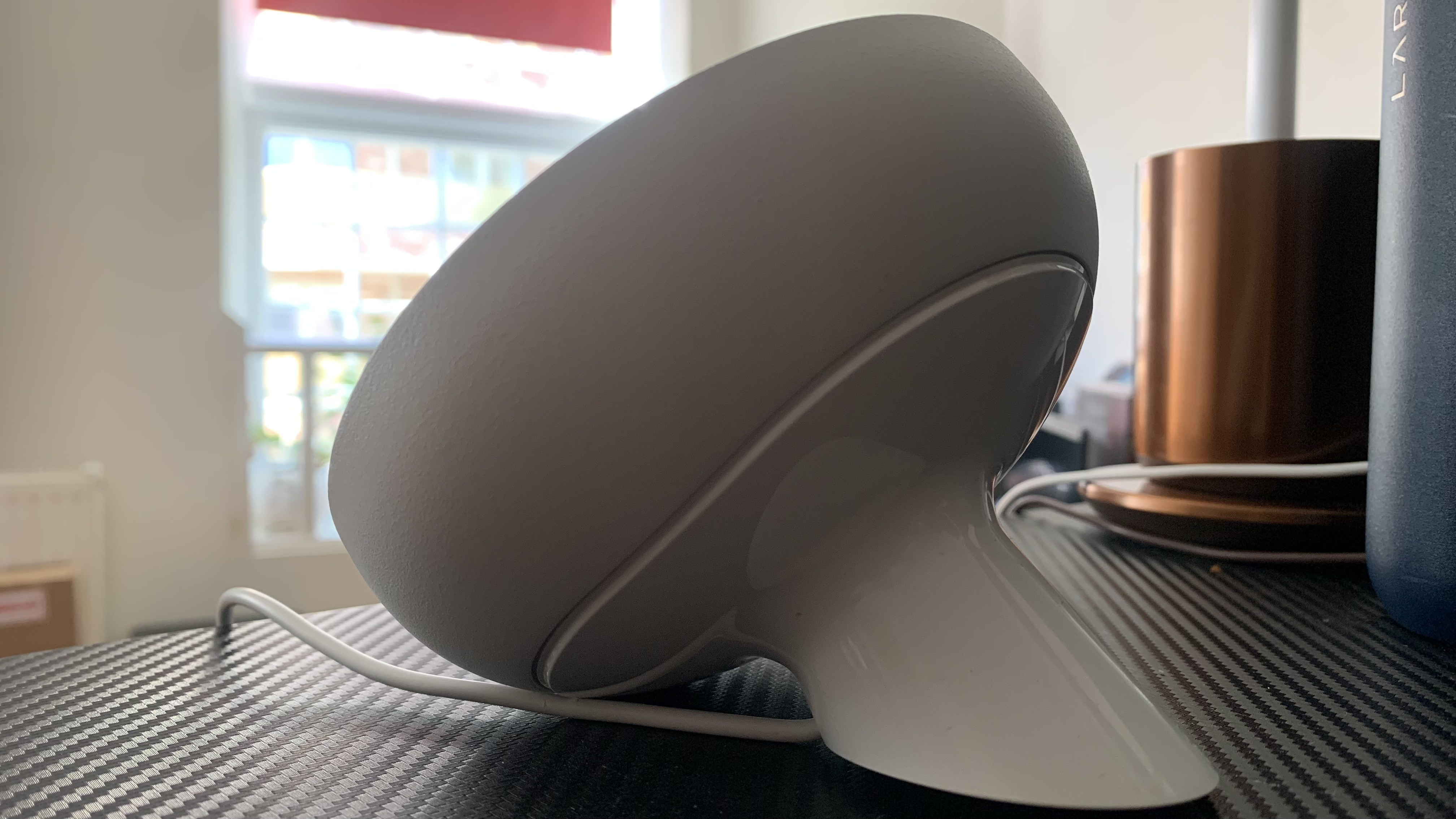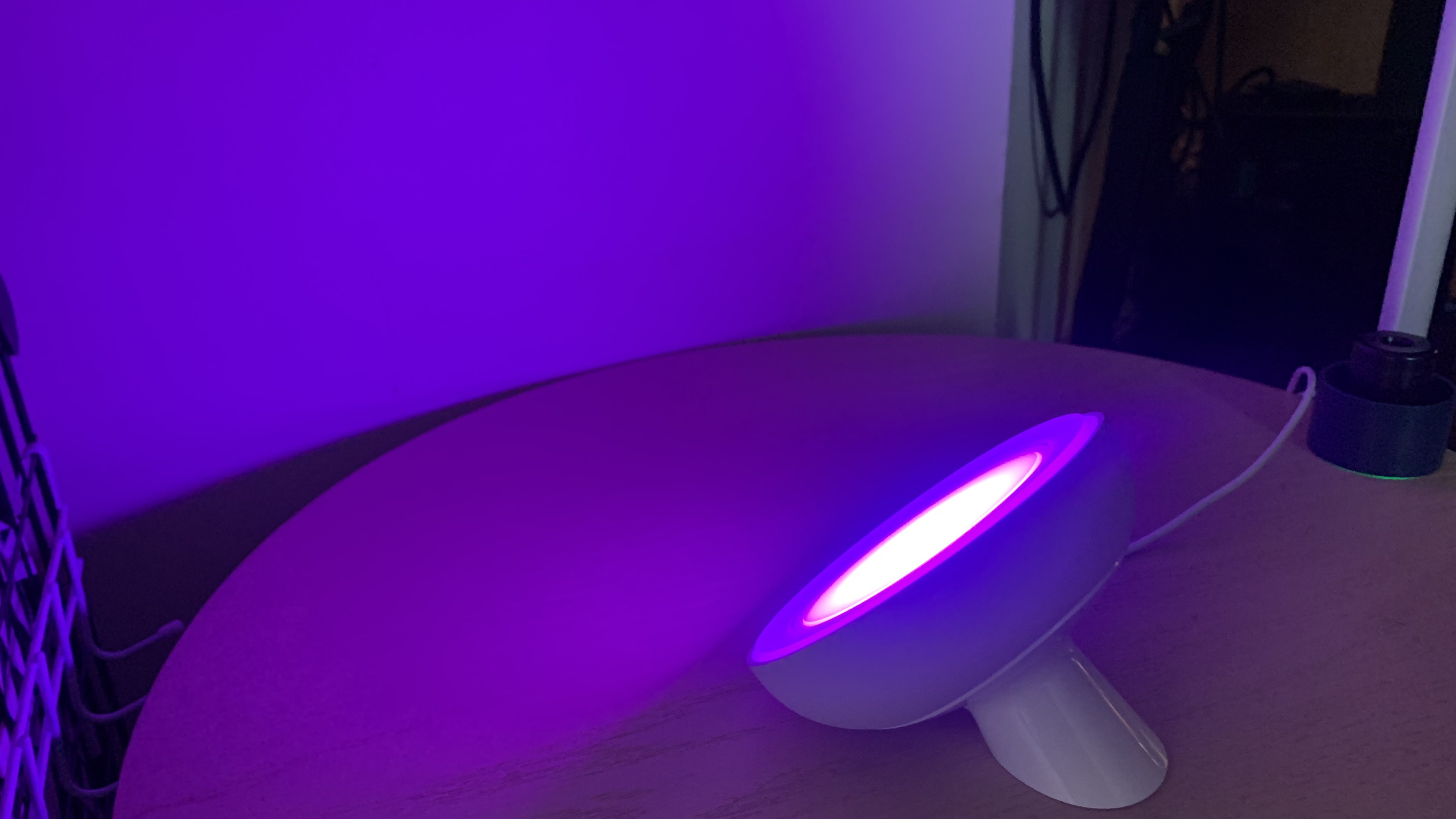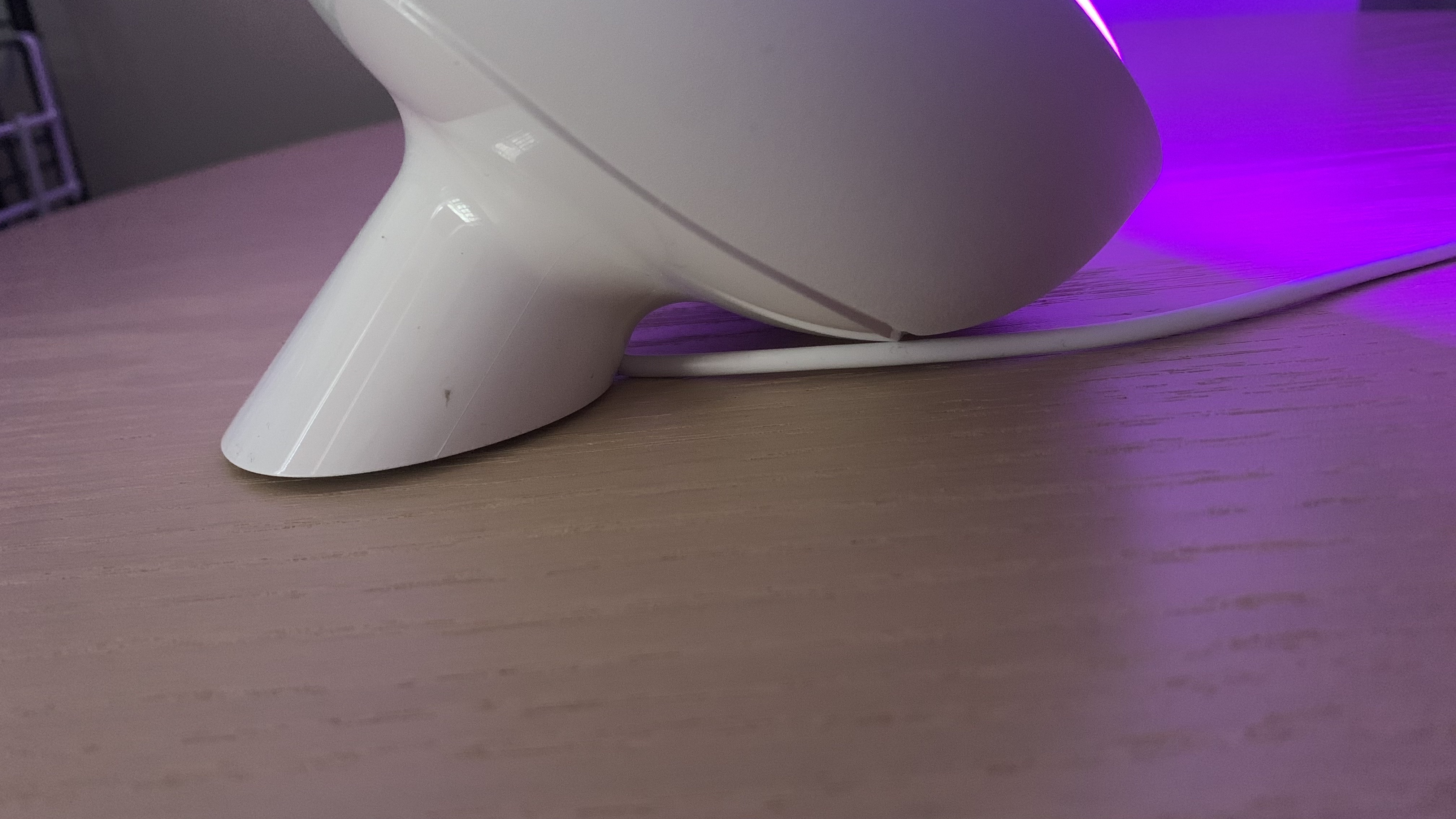Philips Hue Bloom review: a capable and colorful bias and accent light
One-minute review
As well as its ever-growing range of smart bulbs, Philips Hue has been producing table and floor lamps for a number of years, many of which qualify as some of the best smart lights.
Way back in 2013, the Hue Bloom was the first non-bulb smart light to start this trend – a successful gambit, given it’s still a fan favorite to this day. It can be purchased from Amazon, directly from Philips Hue, and from some third-party retailers for $79.99 / £79.99. It’s a little expensive for what it is, especially in the UK; but it’s one of Hue’s more affordable table lamps. Petite at 4 x 5.1 x 5-inches / 10.1 x 12.9 x 12.6cm (h x w x d), the Bloom is a versatile table lamp that works as well for rudimentary bias lighting as it does for accent lighting.

It sports a fairly discreet appearance, especially when it’s off, with a sort of ’70s sci-fi look; neutral, curvy, and clad in white plastic and metal. The front of the light is a flat, angled disc with a small bezel; however, you’re most likely to only ever see the rear or side of the light, since it’s for indirect lighting and performs best when facing walls and corners. The light sits on a short stem, which is home to the power cable; the cable exits through a small arch at the front-facing side of the lamp. Depending on where your power supply is in relation to the lamp, this can prove a little fiddly to set up.
You can set up the lamp via Bluetooth or the Hue Bridge. The latter comes at an additional cost of $59.99 / £49.99, and enables further devices to be connected, while also bringing more features such as remote control. As with all Philips Hue lights, the Bloom is super easy to set up in the app, with the overall user experience splendid. Adding the light to your smart home ecosystem is just as easy, and it’s compatible with Amazon Alexa, Google Assistant and Apple HomeKit.

Its slightly low lumen output somewhat betrays the age of the Bloom – and that’s despite it having had a few generational updates over the years. At just 500 lumens at 4000K, which is about as low as you’d ever want a table lamp to go. However, Bloom isn’t designed to spray light across the room, just to provide an interesting and ambient splash of color – and for that it’s perfectly balanced. There’s also a welcome softness to the Bloom as a result of the frosted covering, which diffuses the light wonderfully.
With the now-standard full 16 million array of colors, the Bloom can produce some beautifully vibrant hues, and you can adjust the temperature and brightness with ease using voice controls with the best smart speakers or via the app. As time has gone on, and Bloom has evolved through different Hue generations, color accuracy has improved significantly, and the most recent version I’ve been testing is exemplary of that evolution.

While there are still a few niggles that I’d have expected Hue to have tackled by now (the cable exit in the stem really irks me, for example), overall the Philips Hue Bloom is an excellent – albeit basic – bias or accent light, offering vibrant and bright ambient lighting in your home. It’s discreet enough to work well in any room, but still a good-looking device in itself.
Philips Hue Bloom review: Specs table
Should I buy?
Buy it if...
Don't buy it if...
Philips Hue Bloom review: Also consider
How I tested the Philips Hue Bloom
- I tested the Philips Hue Bloom for a month
- I used it as part of my smart lighting setup
- I paired it via the Philips Hue Bridge and Alexa
To test the Philips Hue Bloom, I set it up in my living room for a month, alongside a set of other smart lights from other manufacturers.
My primary smart speaker controller is Alexa, which I used in tandem with the Philips Hue app to test the responsiveness, accuracy and ease of use when operating the lamp. I compared its color accuracy to smart lights in various form factors and from different manufacturers, too.
I used the Bloom as both a bias light behind my TV screen and as an accent light for a display cabinet, as well as a table-side light to add some more color spray to my smart light setup
0 comments:
Post a Comment